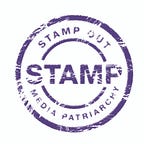The other side of the rainbow: mental health in the LGBTQ+ community
CW: references to self-harm and suicide, transphobia, addiction
by Kylie Riddell
There is a growing awareness of mental health disorders and how common they are in almost every demographic around the world. One of the largest demographics that face these issues is the LGBTQ + community, regardless of ethnicity, social and economic status, culture, and religion, yet this is largely being ignored. These disorders range from a mild to clinical scale however the most common in the community are depression, anxiety, bipolar disorder, and various eating disorders that can lead to a poor quality of life.
Reviewing research in mental health
A 2019 study found that those who suffer from the disorders above, are more at risk of engaging in self-harm, developing addictions and having suicidal ideation. Younger members of the community are more susceptible to these issues, especially now more so than ever during the current climate of the COVID-19 pandemic.
In fact, a 2018 report by LGBT Youth Scotland highlighted several significant figures which demonstrated the severity of this problem. Results indicated that 84% of participants suffer from at least one mental health problem. Furthermore, 78% revealed they experienced feelings of anxiety and 63% experienced depressive symptoms. 43% of participants also admitted to self-harming. The study found that transgender people experience these issues significantly more than other members of the LGBTQ + community.
This is due to structural discrimination against transgender individuals, which can be clearly seen in measures such as The Gender Recognition Act (2004). This act makes it incredibly difficult for transgender individuals to legally change their recognised gender. By going through an exhausting process of convincing panel members that they have been diagnosed with ‘gender dysphoria’ and including two medical reports to support this diagnosis, the act only increases stigmatisation and controls the freedom of trans people. This inevitably provokes a series of negative emotions that leads to poor mental health. Therefore, the restrictions and inequality of gender recognition is a key contribution to mental health issues.
The above findings are alarming to say the least and evidently this is an issue that must be addressed. The LGBTQ + community face all sorts of discrimination that can exist in any environment. This may occur in school, home, workplace, public services and domains, and many other environments where LGBTQ + members may be exposed to verbal and physical harassment that is generated by the public. According to the LGBT Equality Report in 2016, 79% of interviewees reported anti-LGBT actions of discrimination against them at least once in the previous year. This is a significant factor as to why there is a huge proportion of the community who are suffering from poor mental health.
Additionally, this is not being taking seriously in healthcare practices as 21% of interviewees in the LGBT Equality report added that they face discrimination when seeking healthcare for these issues. LGBTQ + members report that they often experience miscommunication with healthcare professionals and are unsatisfied with the treatment they receive while being in a healthcare environment . This would also cause LGBTQ + members to become hesitant towards seeking treatment due to fear and potential prejudice they might experience in a healthcare setting.
As mental health disorders are becoming an ever-increasing problem within the LGBTQ+ community, it is important to ask: Why are they not given enough attention?
Increasing awareness of this issue is critical to decrease discrimination and increase more public health services to create a safer environment for LGBTQ + members who feel unsupported. The COVID — 19 crisis has not improved this situation: one 2020 study has revealed that there is a disparity of mental health research within the community that account for the great impact that lockdown has had on mental wellbeing.
What are the Government doing about this issue?
The Scottish Government has provided funds for the National LGBT Helpline — a service offered by LGBT Health and Wellbeing. The helpline is now available four days a week instead of the usual two. By doing this, the helpline aims to offer additional assistance for individuals who feel lonely and unsupported. Funding has also directly been used to fast track the development of an online community for LGBT Youth Scotland. This will create a safe environment for younger members of the LGBTQ + community where they can communicate with others for support on any problems they may be having during lockdown.
The Scottish Government also plans to consider a draft bill to reform the Gender Recognition Act (2004). The process of legally changing a recognised gender can be tiresome, costly, and expensive. The proposed draft states that applicants will not need to be diagnosed with gender dysphoria and will not need to provide any medical documents to confirm this. Instead, applicants will need to live as their preferred gender for at least six months. This proposed process would also be available for individuals at the age of 16 instead of 18.
What support services are available?
As well as the National LGBT Helpline, several other mental health support services exist that are specifically designed for the LGBTQ + community. Mind Out is an organisation who understand the mental health stigma within the community and provide resources to assist those who require support. By offering peer support groups, counselling, online support, and many other services that are accessible by phone, this organisation covers many areas from mental health to general wellbeing. More organisations like Mind Out are listed below to offer similar support and information on this issue.
Resources
https://www.lgbthealth.org.uk/services-support/lgbt-mental-health/
https://www.stonewall.org.uk/help-and-advice
Mutual Aid
matedinburgh.wordpress.com (Edinburgh)
https://smalltranslibrary.org (Glasgow)
Helplines
www.lgbtyouth.org.uk — LiveChat runs: Monday 2–8pm, Wednesday 4–8pm, Thursday 6–8pm
or email info@lgtbyouth.org.uk
